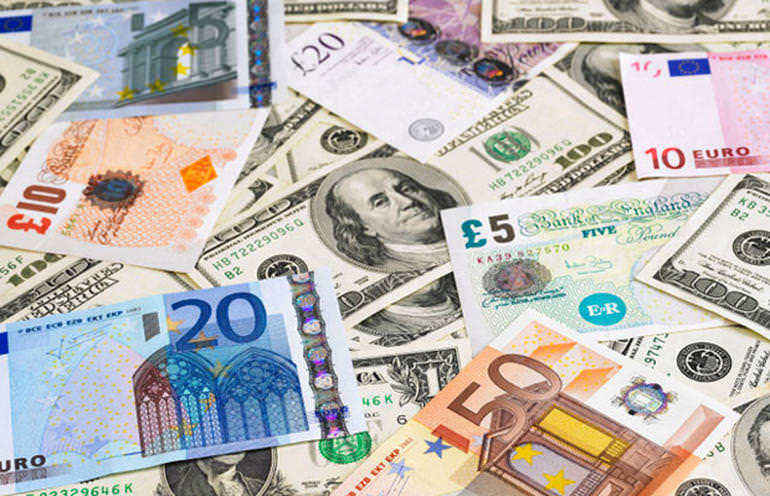Why Choose Forex Trading? The Benefits Explained
June 5, 2018

In recent years, Forex has become widely popular. It has gained mass appeal, making it accessible even to laypeople (with prior self-study training). Those who start Forex trading are driven by curiosity and the promises that invariably fill advertisements. In reality, there are many good reasons to trade Forex, beyond the fact that "everyone (or almost everyone) is doing it." In this article, we will discuss all those elements that make Forex the top choice in terms of speculative investment.
Size
Forex is the largest market in the world, primarily due to its liquidity. It is extremely liquid. It is sufficient to mention one figure to demonstrate this axiom: the euro-dollar pair alone, which is the most important, moves around 3,000 billion dollars a day, an amount of money greater than the Italian public debt, which is the third largest in the world.
Forex is also "big" because it allows for "almost" non-stop trading activity. It is open twenty-four hours a day, five days a week. At any time of the day, it is possible to trade and earn, perhaps by following the various stock market sessions, from the European to the Asian ones.
Moreover, the size of Forex shelters it from manipulation by individuals. Prices cannot be influenced as they can in other markets (e.g., cryptocurrencies, bonds).
Costs
To be clear, Forex is not entirely free. However, compared to other markets, the costs are much lower. For example, commissions are rare, and when they exist, they do not significantly affect potential earnings. The secret lies in the business model that drives the activity of brokers. Forex intermediaries, in most cases, i.e., when they act as market makers, do not earn from commissions or spreads. Incidentally, the spread is the difference between the real price and the price set by the broker. The spread is always disclosed in advance by the broker.
Even entry costs are low. To trade in other markets, such as Futures, substantial capital is required. Many brokers, however, allow opening an account with just a few hundred euros. It is possible to invest small amounts, thanks to the leverage mechanism (which we will discuss in the next paragraphs) and the existence of mini-lots and micro-lots.
Earning Opportunities
It is essential to be clear on this point: Forex is not a playground. Earning is not simple at all; the market is complex, and the same can be said of the dynamics that drive it. Nevertheless, earning opportunities exist and are significant. This is due to numerous factors, including leverage.
Leverage is a tool that allows replicating the effects of an investment higher than the actual one. For example, you can commit "10" and earn as if you had invested "100." The ratio between what you actually invest and what you invest with leverage applied is called the "leverage ratio." It can be 1:10, 1:50, 1:100, and so on. Leverage, of course, is a double-edged sword: it increases potential profits and also increases potential losses. For this reason, it is necessary to be cautious and not exceed a leverage of 1:500.
Readability
Forex is a readable market. Note that this does not mean predictable, only readable. Its unpredictability stems from the volatility of prices, which is significant, similar to or even more than in other markets. Its readability, on the other hand, comes from the wealth of analytical and informational tools available to those who want to forecast price directions (or, if skilled, the prices themselves).
Forex is at the center of analysts' research activities. The relationships between currencies, i.e., exchange rates, are the subject of articles, reports, and studies. This allows for the availability of a genuine toolbox for both experienced and novice traders.
Moreover, Forex is the topic of guides, tutorials, and manuals. In short, from an informational and analytical point of view, the Forex market has nothing to envy about the stock market.
Accessibility
Forex has low entry barriers. It is not just a matter of costs. It is the way in which intermediaries, i.e., the aforementioned brokers, approach users that determines such accessibility. In recent years, brokers have set up simple, user-friendly interfaces that can be used by anyone, with prior study and practice.
Brokers have also taken this approach from an educational perspective. Almost all brokers offer educational content capable of preparing novices for the market, with a bit of patience.
Security
Despite what detractors say, Forex is safe. There was a time when, riding the wave of general liberalization, bad apples crowded the currency market, undermining the work of honest operators and casting shadows over the entire sector. Today, the landscape is much cleaner. Firstly, because supervisory bodies intervened quickly and effectively. Secondly, because even novices, thanks to multi-level educational work, have been equipped with the theoretical tools to distinguish honest brokers from dishonest ones.
Specifically, to determine if a broker is honest, it is necessary to verify their license, which must be issued by a recognized regulatory body, such as CySEC, FCA, ASIC, etc. The best setup includes one or more internationally recognized licenses (like those just mentioned) and one or more licenses issued by a local authority (such as Consob).




